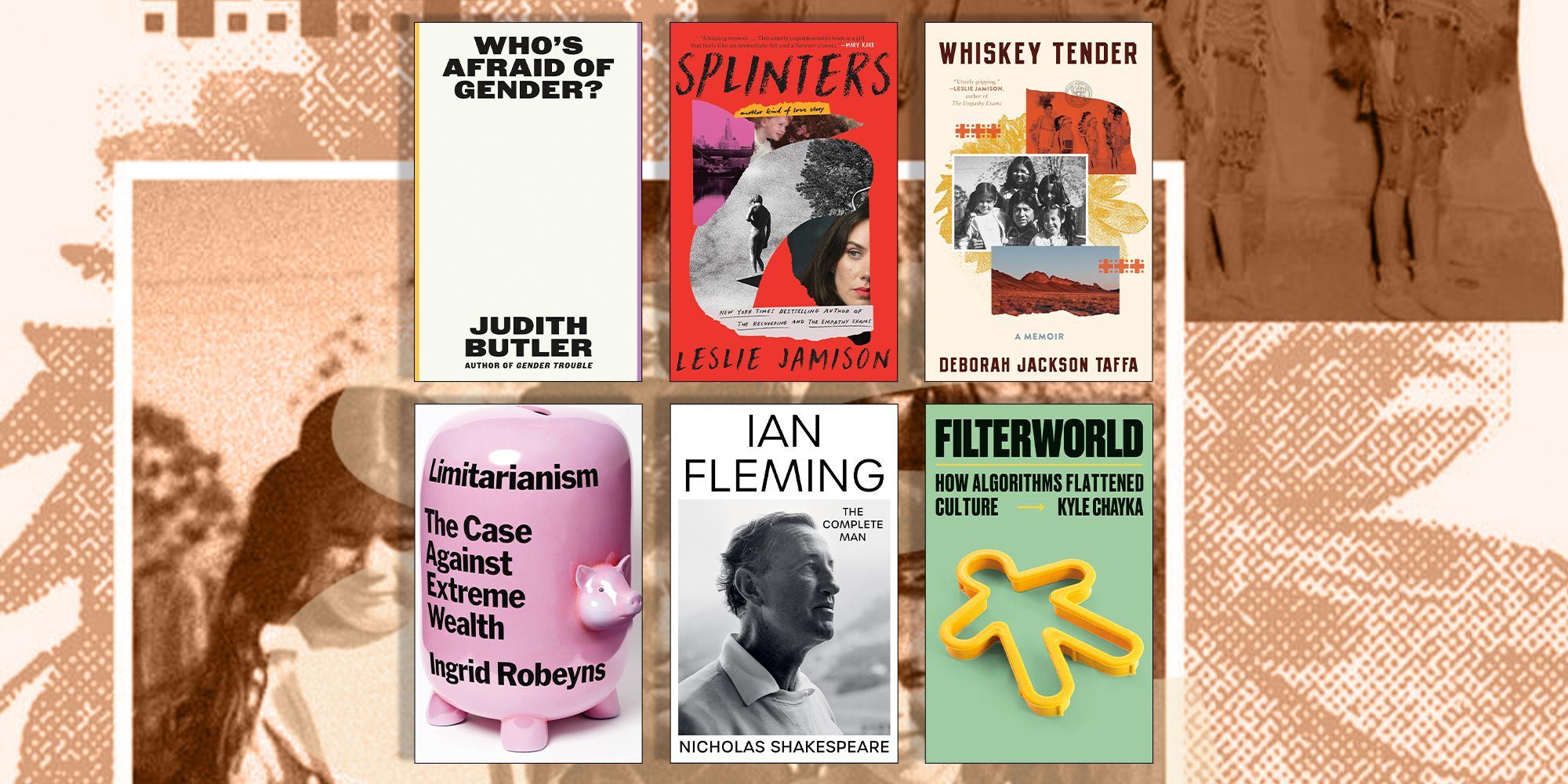9 Best Nonfiction Books to Expand Your Mind in 2024
Whether you’re a seasoned reader or just dipping your toes into the world of nonfiction, there’s always something new to discover. Nonfiction books offer a wealth of knowledge, insights, and real-life stories that can inspire and inform. From gripping memoirs to eye-opening investigative journalism, the genre has something for everyone.
1. Best Historical Insight: “Sapiens: A Brief History of Humankind” by Yuval Noah Harari
Yuval Noah Harari’s “Sapiens” offers a thorough exploration of humanity’s journey through history. It’s an ideal book if you’re captivated by the evolution of our species.
Unpacking Humanity’s Past
Harari begins with the Cognitive Revolution around 70,000 years ago. He explains how Homo sapiens’ unique cognitive abilities distinguished them from other species. You learn about the shift from small hunter-gatherer bands to complex societies. The Agricultural Revolution, starting about 10,000 years ago, gets considerable attention. Harari provides detailed insights into how it transformed human society and environment. Fast forward to the Scientific Revolution, he explores how modern science reshaped our understanding of the world and our place in it.
Key Learnings from “Sapiens”
You discover the impact of myths and stories on societal cohesion. Harari argues that shared beliefs have been critical in uniting large groups of people. Economic systems, such as capitalism, are dissected through a historical lens, shedding light on their evolution and influence. Harari also delves into the future, discussing genetic engineering and artificial intelligence. His perspective on future scenarios is both fascinating and thought-provoking, leaving you contemplating the next steps for humanity.
2. Best Scientific Exploration: “A Brief History of Time” by Stephen Hawking
Stephen Hawking’s “A Brief History of Time” simplifies cosmic concepts, making them accessible to everyone.
The Complexities of Space and Time Simplified
Hawking’s book transforms abstruse topics like black holes, quantum mechanics, and the big bang into readable, engaging content. He uses analogies and anecdotes to break down the science. For example, he likens the expanding universe to a balloon being inflated, making it easier to visualize. You don’t need a physics background to follow along; Hawking’s writing bridges the gap between complex theories and everyday understanding.
Impact of Hawking’s Theories on Modern Science
Hawking’s work reshaped our comprehension of the universe. His theories on black hole radiation, known as Hawking radiation, revolutionized astrophysics. Scientists now incorporate his findings into ongoing research. For instance, his prediction that black holes could emit radiation was groundbreaking. By demystifying the universe’s workings, Hawking not only popularized science but also laid the groundwork for future discoveries in cosmology and theoretical physics.
3. Best in Business and Economics: “Freakonomics” by Steven D. Levitt and Stephen J. Dubner
Unconventional Wisdom in Economics
“Freakonomics” challenges traditional economic thinking by exploring hidden incentives and unexpected connections. Levitt and Dubner delve into topics from crime rates to education, revealing how real-world issues often defy conventional wisdom. Their approach transforms economics from a dry subject into a dynamic field with surprising insights.
Major Takeaways for Entrepreneurs and Economists
“Freakonomics” offers key insights for entrepreneurs and economists by highlighting the importance of questioning assumptions. It teaches you to look beyond surface-level explanations and consider underlying incentives. Examples such as the correlation between legalized abortion and crime rates showcase how seemingly unrelated factors can impact societal trends. These insights can guide you in making more informed business decisions.
4. Best Political Commentary: “The Fifth Risk” by Michael Lewis
Curious about the intricacies of governmental functions? “The Fifth Risk” by Michael Lewis provides an eye-opening analysis of the often unseen challenges within large government institutions.
Dissecting Governmental Inefficiencies
Learn how “The Fifth Risk” delves into the structural inefficiencies plaguing U.S. government departments. Lewis exposes how bureaucratic red tape, lack of continuity, and unprepared leadership hinder effective governance. He illustrates these inefficiencies through real-world examples, including the Departments of Energy, Agriculture, and Commerce. Each chapter uncovers the critical yet overlooked work these agencies perform, emphasizing the potential risks of mismanagement.
Lessons in Governing and Responsibility
Discover the broader lessons on governance and responsibility that Lewis imparts. The book stresses the importance of knowledgeable and dedicated public servants in safeguarding national interests. Through a series of interviews with key figures in various agencies, you’ll gain insight into the complexities and responsibilities of managing significant public resources. Lewis underscores how individual actions and decisions within these institutions have far-reaching consequences, making this a must-read for anyone interested in political science or public administration.
5. Best Memoir: “Educated” by Tara Westover
A Journey From Isolation to Enlightenment
“Educated” by Tara Westover chronicles the author’s transformation from a survivalist family in rural Idaho to earning a Ph.D. from Cambridge University. Westover’s upbringing, devoid of formal education, compels you to realize the stark contrasts between isolation and enlightenment. Her journey explores the interplay between family loyalty and the thirst for knowledge—a balance that many find relatable. Westover’s recounting of her unique experiences engages you and invites introspection about your own educational path.
The Power of Education in Overcoming Adversity
Westover’s memoir highlights the pivotal role of education in surmounting life’s challenges. The narrative demonstrates that even profound adversity can be overcome through the tenacity of pursuing learning. As you read, you’ll witness how Westover’s self-education becomes a tool for liberation, breaking the chains of her past. This memoir not only underscores the transformative power of education but also inspires you to consider how learning can change your circumstances, no matter how insurmountable they seem.
6. Best on Societal Issues: “Outliers: The Story of Success” by Malcolm Gladwell
Decoding the Patterns of Success
Malcolm Gladwell’s “Outliers” dives into what makes high-achievers different. He challenges the notion that individual talent and hard work alone guarantee success. Instead, Gladwell explores hidden advantages and cultural legacies influencing remarkable outcomes. He uses vivid examples like Bill Gates and The Beatles to illustrate how timing, opportunities, and cultural background contribute to success. You’ll find yourself rethinking conventional beliefs about merit and achievement.
Why Some People Succeed and Others Don’t
Gladwell breaks down the reasons behind why some individuals reach extraordinary heights while others don’t. He posits that societal forces and sheer luck often play significant roles. Using the concept of the “10,000-Hour Rule,” he asserts that practicing a skill for 10,000 hours significantly increases your chances of becoming an expert. Real-life stories support his theory, showing how meaningful access to resources and support systems impacts success. This book urges you to consider the broader context behind individuals’ achievements and inspires you to recognize the unseen elements shaping success.
7. Best Psychological Insights: “Thinking, Fast and Slow” by Daniel Kahneman
“Thinking, Fast and Slow” offers a deep dive into how our minds work. Daniel Kahneman, a Nobel laureate, provides compelling insights into our thought processes.
Understanding Our Mental Processes
Kahneman’s book explores two systems of thought: System 1, which is fast and intuitive, and System 2, which is slow and deliberate. System 1 helps you make quick decisions without much effort, like recognizing a friend’s face. System 2, on the other hand, kicks in for more complex tasks, such as solving a math problem. These distinct modes influence every decision you make, often without you noticing. The book’s blend of psychological experiments and relatable examples uncovers the biases and errors inherent in each system.
Applying Psychological Concepts to Everyday Life
“Thinking, Fast and Slow” isn’t just theory—it’s highly practical. Kahneman shows how you can utilize these insights to improve personal and professional decision-making. By being aware of cognitive biases like anchoring and loss aversion, you can make better choices in areas from finance to health. For instance, understanding how the framing effect influences your decisions can help you craft clearer, more persuasive communications. This book equips you with tools to recognize and mitigate the mental shortcuts impacting your daily life.
8. Best Investigative Journalism: “Bad Blood: Secrets and Lies in a Silicon Valley Startup” by John Carreyrou
John Carreyrou’s “Bad Blood” unravels the shocking saga of Theranos, a biotech firm once heralded as revolutionary. This book is a masterclass in investigative journalism, emphasizing the need for ethical conduct in tech innovation.
The Theranos Scandal Unveiled
Carreyrou exposes how Theranos, led by Elizabeth Holmes, misled investors, patients, and the media with false claims about its blood-testing technology. Holmes promised breakthroughs that could run hundreds of tests from a single drop of blood, but the reality was far from it. Systemic deceit within the company and its unwillingness to address safety and efficacy concerns form the crux of the scandal. Interviews with whistleblowers and insider stories add compelling, real-world drama to this narrative, showing how far ambition can veer into fraud.
The Impact of Deception in Tech
This book illustrates the broader consequences of unchecked deception in the tech world. It highlights how Theranos’ fraudulent practices risked patient health and shattered investor trust. The Theranos scandal serves as a cautionary tale for tech startups, investors, and consumers, emphasizing the importance of transparency and accountability. Carreyrou’s meticulous reporting encourages you to scrutinize bold claims in the tech industry critically, ensuring lessons from Theranos are never forgotten.
9. Best on Environmental Issues: “The Uninhabitable Earth: Life After Warming” by David Wallace-Wells
“The Uninhabitable Earth: Life After Warming” by David Wallace-Wells is a compelling and urgent exploration of climate change’s impact on humanity and the planet.
Facing the Facts on Climate Change
Wallace-Wells dives deep into the stark realities of climate change. He examines data from various scientific studies, providing a sobering look at how global warming could transform our world. Rising sea levels, extreme weather events, and mass species extinction are not distant possibilities but imminent threats. He makes a compelling case that immediate action is required to mitigate these impacts. This book forces you to confront the gravity of the environmental crisis we’re facing.
Strategies for Combating Environmental Decline
Wallace-Wells doesn’t just highlight problems; he also discusses potential solutions. He champions aggressive reduction of carbon emissions as a critical strategy. Renewable energy adoption and reforestation are highlighted as essential actions. He stresses the importance of political will and public engagement in driving change. By examining feasible paths forward, Wallace-Wells inspires hope and a sense of urgency in tackling environmental decline.
Conclusion
Exploring these nonfiction books can provide you with a wealth of knowledge and fresh perspectives. Whether you’re delving into human history, scientific phenomena, economic theories, or personal stories of transformation, each book offers valuable insights. They challenge conventional thinking, reveal hidden truths, and inspire action. These carefully curated titles not only expand your understanding but also equip you with the tools to navigate the complexities of the modern world. So pick up one of these books and embark on a journey of discovery and enlightenment.






